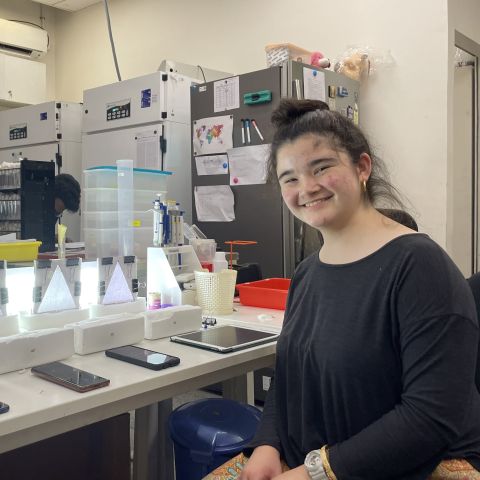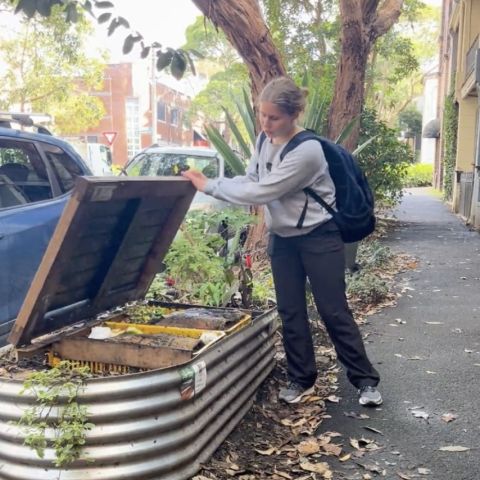Latin American and Caribbean Studies
Information Session: Global Research Fellows
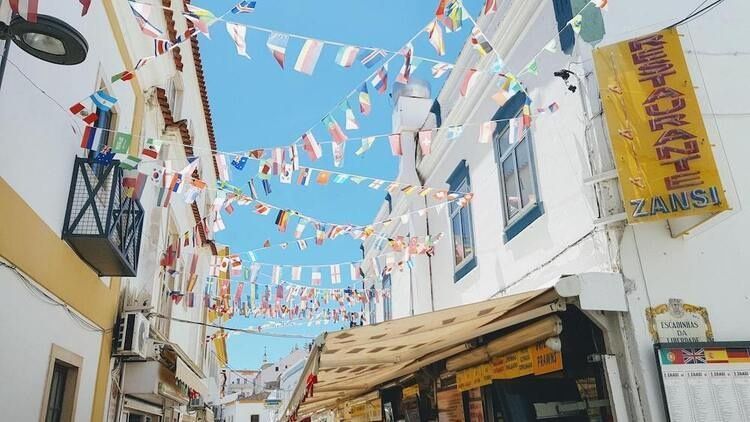
September 11, 2025
4:30 pm
Uris Hall, G08
Global Research Fellows are a new interdisciplinary research and professional development community at the Einaudi Center for advanced graduate students, Cornell postdocs, and visiting and local scholars. You'll find a community of fellow researchers with regional and international interests and a desire to foster a more equitable world.
Eligible students:
• Have completed at least two years of graduate education
• Engaged in research on a topic of global or regional studies significance
• Hold a strong desire to impact global challenges and create real-world solutions
• Interested in engaging and collaborating with other researchers
Can’t attend? Contact programs@einaudi.cornell.edu.
***
The Mario Einaudi Center for International Studies hosts info sessions for graduate and for undergraduate students to learn more about funding opportunities, international travel, research, and internships. View the full calendar of fall semester sessions.
Additional Information
Program
Einaudi Center for International Studies
Reppy Institute for Peace and Conflict Studies
East Asia Program
Southeast Asia Program
Latin American and Caribbean Studies
Institute for African Development
Institute for European Studies
South Asia Program
Migrations Program
Southwest Asia and North Africa Program
Spanish Conversation Hour
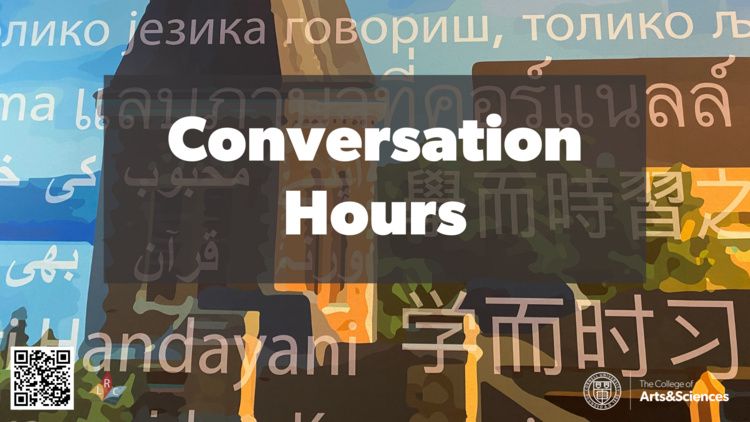
December 8, 2025
12:15 pm
Stimson Hall, G25
Come to the LRC to practice your language skills and meet new people. Conversation Hours provide an opportunity to use the target language in an informal, low-pressure atmosphere. Have fun practicing a language you are learning! Gain confidence through experience! Just using your new language skills helps you learn more than you might think. Conversation Hours are open to any learner, including the public.
Additional Information
Program
Latin American and Caribbean Studies
Spanish Conversation Hour
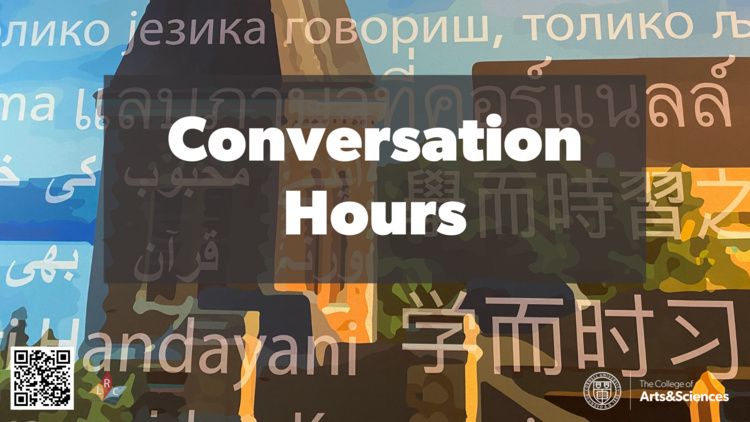
December 4, 2025
6:30 pm
Physical Sciences Building, Atrium
Join us this summer to practice your language skills and meet new people. Conversation Hours provide an opportunity to use the target language in an informal, low-pressure atmosphere. Have fun practicing a language you are learning! Gain confidence through experience! Just using your new language skills helps you learn more than you might think. Conversation Hours are open to any learner, including the public.
Additional Information
Program
Latin American and Caribbean Studies
Book Talk: Chile in Their Hearts: The Untold Story of Two Americans Who Went Missing After the Coup (Univ. Of California Press, 2025)
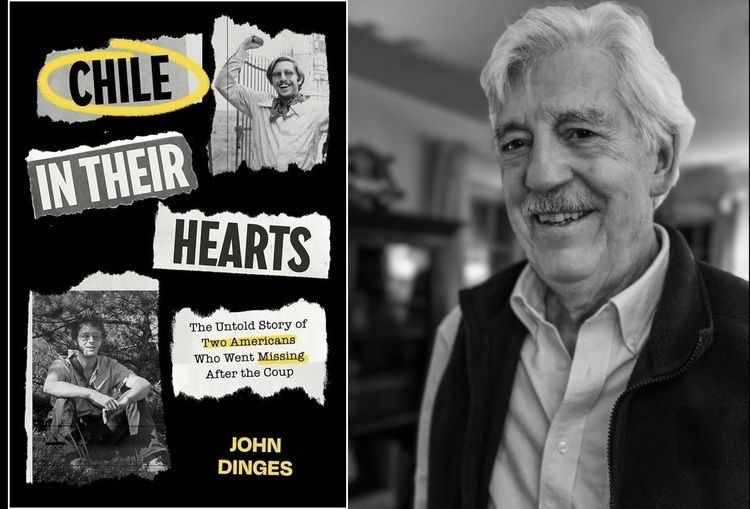
November 5, 2025
4:30 pm
Uris Hall, G08
This Event is CANCELED due to family emrgency
Resisting Authoritarianism: The Political Journey and Mysterious Deaths of Two Young Americans in Pinochet’s Chile.
Allende’s revolution promised real democracy and real social change. It inspired idealistic young people from all over to travel to Chile to participate. Many who came were political exiles from South American countries that had become dictatorships. It was a political journey, full of hope. It ended in a military coup, encouraged by the United States, in which thousands were rounded up and executed. Two Norteamericanos—Charles Horman and Frank Teruggi—were secretly executed, and their murders inspired the Hollywood movie Missing. John Dinges was also in Chile at the time of the coup. His book tells what really happened. His surprising findings shed light not only on an iconic period in Latin America but provide signposts for the current slide toward authoritarianism in the United States.
John Dinges is a former foreign correspondent and the author of three books on major events involving the United States and Latin America. He was a special correspondent in Chile and Central America for The Washington Post, where he also worked as a foreign desk editor. He served as deputy foreign editor and managing editor of National Public Radio News. Mr. Dinges is the recipient of the Maria Moors Cabot Prize for excellence in Latin American reporting, and the Media Award of the Latin American Studies Association. He also shared two DuPont-Columbia University prizes for broadcast journalism, as NPR managing editor. He is currently on the faculty of the Columbia University Graduate School of Journalism. He has an MA in Latin American studies from Stanford University.
Additional Information
Program
Einaudi Center for International Studies
Latin American and Caribbean Studies
Planetary Health as Atmospheric Cultivation: Lessons from Nicaragua’s Sugarcane Zone.
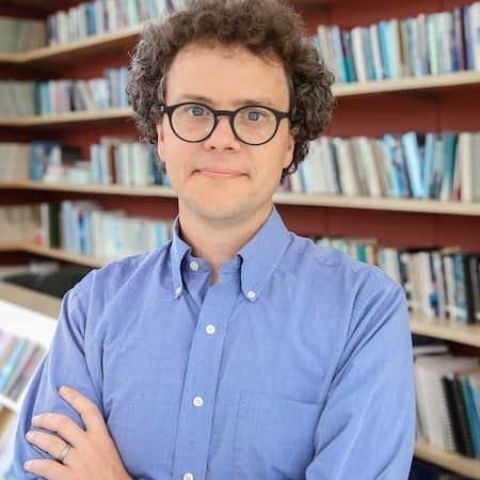
September 16, 2025
12:20 pm
G08, Uris Hall
Chronic Kidney Disease of non-traditional causes (CKDnt) is among the first pathologies to be directly associated with climate change, and it has become a case study in the emerging field of “planetary health.” While its exact origins remain unknown, leading theories suggest that CKDnt is triggered by exposure to extreme heat. A desire to test that hypothesis has drawn occupational and environmental health researchers to sites where CKDnt is widespread. Perhaps most prominent among these is the sugarcane zone of western Nicaragua, where thousands of laborers have been diagnosed with kidney disease. In this talk, I develop a critical anthropological approach to planetary health, arguing that the recent focus on mitigating workplace heat exposure elides other environmental health concerns regarding industrial sugar production, particularly about the use of toxic agrochemicals. The systematic push by corporations and transnational scientists to find ways to profitably produce sugarcane under conditions of extreme heat is paralleled by the efforts of sugarcane zone residents to make knowledge claims about the slower and more accretive changes in climate wrought by chemically driven cane production.
Alex Nading is Associate Professor and Director of Graduate Studies in the Department of Anthropology at Cornell University. He is the former editor (2021-2024) of Medical Anthropology Quarterly and author of two books, Mosquito Trails: Ecology, Health, and the Politics of Entanglement (2014) and The Kidney and the Cane: Planetary Health and Plantation Labor in Nicaragua (2025). His research and teaching interests include the anthropology of health, the environment, infrastructure, and science, and his latest project examines the relationship between technologies of personal protection and planetary ecological change.
Additional Information
Program
Einaudi Center for International Studies
Latin American and Caribbean Studies
Space Exploration, Alternative Futures, and Cuban Speculative Imagination
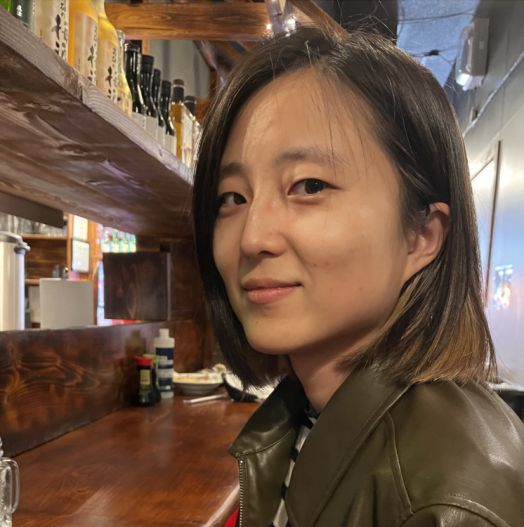
November 18, 2025
12:20 pm
153, Uris Hall, 153, Uris Hall
The tender longing for the stars, an impulse familiar to many, has unfolded alongside another trajectory in modernity: from Captain Cook’s pursuit of Venus to NASA’s Space-Age invocation of Christopher Columbus, tracing a historical course intertwined with imperial expansion. The cultural imagination of space exploration, arguably most concentrated in the genre of science fiction (sf), is also haunted by what Gerry Canavan calls a “bad [colonial] conscience.” While scholars such as Istvan Csicsery-Ronay Jr., John Rieder, and Jessica Langer have examined the colonial and postcolonial operations within the genre, others, including Sheree Renée Thomas, Grace Dillon, Lou Cornum, and Taryne Jade Taylor, have turned to minoritarian SF traditions—Afrofuturism, Indigenous futurism, and Latinx futurism—that foreground speculative geographies illuminating decolonial concepts of temporality and subjectivity.
Engaging with this constellation of scholarship on colonial speculation and alternative futuring in the Anglophone sphere, this presentation turns to early revolutionary Cuba, whose anti-colonial, socialist, and Cold War conditions offer a unique historical, linguistic, and cultural vantage point for speculative imagination. Specifically, I focus on Ángel Arango’s 1964 short story “El cosmonauta” (“The Cosmonaut”)—an early exemplar of Cuban science fiction—and ask: How does Arango’s playful engagement with Indigenous narratives, Caribbean postcolonial writing, and European colonial travelogues reconfigure the genre’s inherited traditions? In what ways does it invite us to rethink our relation to history and the human subject? In other words, what alternative visions might it bring to complicate prevalent capitalist techno-utopian discourses of space exploration?
Lu Han is a Ph.D. candidate in the Department of Romance Studies. Her research focuses on 20th- and 21st-century Hispanophone Caribbean and Mexican literature, visual culture, and intellectual traditions. She is currently developing a project on alternative perspectives of space exploration in Latin American speculative imagination, from the 1950s to the present. This project emphasizes non-Western ideas of temporality, technology, ecology, and the human, while also highlighting how space ambitions create complex dynamics among postcolonial modernity, decolonization, and racialization.
Additional Information
Program
Einaudi Center for International Studies
Latin American and Caribbean Studies
Rights, Benefits, and Climate Action: Strengthening Indigenous Participation in Jurisdictional REDD+
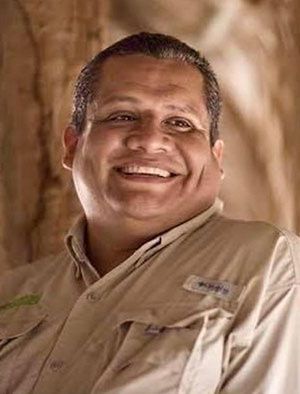
September 26, 2025
12:20 pm
G08, Uris Hall
This talk examines how to ensure Indigenous Peoples are meaningfully involved in jurisdictional REDD+ initiatives, with their rights safeguarded and their perspectives actively shaping decisions. It highlights practical approaches for designing benefit-sharing systems, implementing safeguards, and establishing governance models that reflect both climate goals and Indigenous priorities. Drawing on lessons from diverse regions, it showcases successful collaborations among governments, Indigenous organizations, and civil society that have advanced equitable, transparent, and high-integrity climate finance. Attendees will gain concrete strategies and real-world examples to strengthen Indigenous participation in REDD+, fostering trust, resilience, and lasting outcomes for both climate and biodiversity.
Edgar Godoy is a senior environmental strategist and trained biologist with over 15 years of experience in sustainable forest governance, climate change mitigation, and jurisdictional REDD+ implementation. He holds a degree in biology and has built his career through leadership roles in international NGOs, government collaborations, and multilateral platforms. He is a former Director for Rainforest Alliance Latin America and has provided technical support to Mexico’s National Protected Areas Commission (CONANP).
Edgar specializes in forging lasting partnerships with subnational governments, Indigenous Peoples, and local communities to design and scale high-integrity forest carbon finance solutions. With deep expertise in policy frameworks, safeguards, and benefit-sharing mechanisms, he ensures technical assistance aligns with country priorities while fostering inclusive climate action.
His leadership has been pivotal in advancing carbon market readiness, facilitating ERPA negotiations, and engaging diverse stakeholders across Latin America, Africa, and Southeast Asia. By connecting policy, science, and local priorities, Edgar brings strategic insight and diplomatic skill to the fight against deforestation, helping shape equitable, lasting climate solutions.
Additional Information
Program
Einaudi Center for International Studies
Latin American and Caribbean Studies
Our Stories in Motion: A Migrations Exhibit
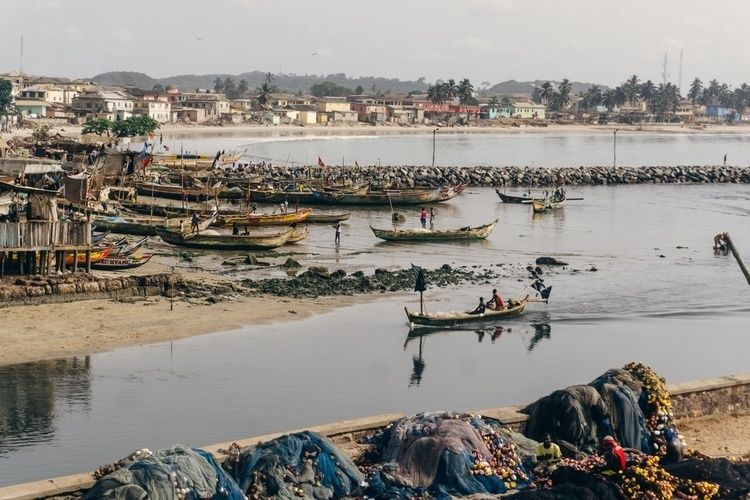
September 19, 2025
3:00 pm
Mann Library, 102
View the art, media, and writing of Cornell students and staff who share the ways that migration shapes their lives in this Mann Library exhibit. The exhibit will showcase winning submissions from the Migrations Program's creative writing and art competition and an interactive digital space where you can share your own migration story.
At the exhibit's launch, keynote speaker Cathy Linh Che will read poetry and join us for a Q&A session, and Pedro Molina will present his work.
About the Speakers
Cathy Linh Che is a writer and multidisciplinary artist. She is the author of Becoming Ghost (Washington Square Press, 2025), Split (Alice James Books), and co-author, with Kyle Lucia Wu, of the children’s book An Asian American A to Z: a Children’s Guide to Our History (Haymarket Books). Her video installation Appocalips is an Open Call commission with The Shed NY, and her film We Were the Scenery won the Short Film Jury Award: Nonfiction at the Sundance Film Festival. She teaches as Core Faculty in Poetry at the low residency MFA program in Creative Writing at Antioch University in Los Angeles and works as Executive Director at Kundiman. She lives in New York City.
Pedro X. Molina is an award-winning Nicaraguan political cartoonist known for his sharp critiques of authoritarianism and human rights abuses. Forced into exile in 2018 after government reprisals against independent media, he now lives and works in the United States, creating cartoons for outlets including Confidencial, Counterpoint, the Washington Post, and Politico. A 2021–22 Institute of International Education Artist Protection Fund fellow at Cornell University and current visiting critic with the Einaudi Center’s Latin American and Caribbean Studies program, Molina has also been a visiting scholar at Ithaca College and the Brunell Visiting Scholar at Cayuga Community College. His work has earned major international honors, including the 2021 Gabo Award for Excellence and the 2023 Václav Havel International Prize for Creative Dissent.
Host and Sponsors
The Migrations Program, part of the Mario Einaudi Center for International Studies, is hosting this event.
This event is supported by the Migrations Program, part of the Mario Einaudi Center for International Studies, and the Mellon Foundation’s Just Futures Initiative
Co-sponsored by the Southeast Asia Program
Additional Information
Program
Einaudi Center for International Studies
Migrations Program
Southeast Asia Program
Latin American and Caribbean Studies
Institute for European Studies
Spring Break Sustainability Education Policy Program in Ecuador Info Session
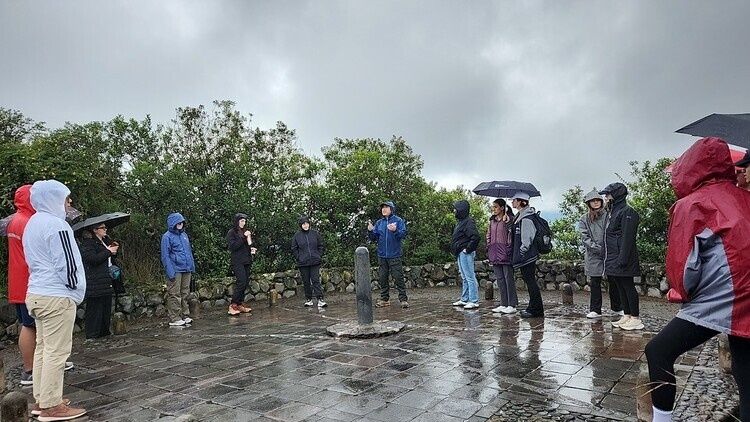
September 4, 2025
4:30 pm
Uris Hall, G22
Come learn more about this spring opportunity with spring break travel, developed in partnership with Universidad San Francisco de Quito (USFQ), National University of Singapore (NUS), and as part of the Jeb E. Brooks School’s Global Policy Exchange Lab. This collaborative online international learning (COIL) and community-based global learning (CBGL) course allows a unique exchange as highlighted in our overview of the Spring 2024 program. The program invites Cornell students to explore the complexities of education policy and practice in the United States and Ecuador with students and faculty from USFQ and NUS as well as with teachers, administrators, and policy makers in both contexts.
Additional Information
Program
Latin American and Caribbean Studies
Global Internships
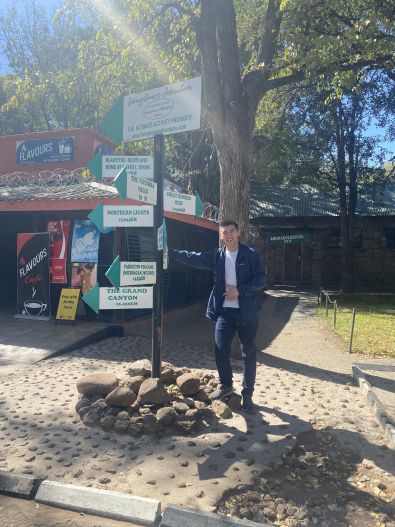
Details
Gain valuable international experience with a Global Internship! As an intern, you'll meet mentors and colleagues working in the international arena and advance your career goals.
Our Global Internships span the globe with placements at Cornell Global Hubs partner universities, community nonprofits and NGOs, and global practitioners partnering with Einaudi's regional and thematic programs. We offer internships specializing in global development, climate and sustainability, international relations, communication, business, governance, and more.
Many opportunities have several openings, giving you a chance to intern abroad next summer with fellow Cornellians.
What You'll Learn
How to Be a Global Citizen
"My internship helped me to strengthen my sense of cultural awareness, intercultural communication, and empathy."—Haruna Floate '26
How to Think Internationally
"In university, we are often taught U.S.-centric views, which can be limiting as environmental problems are global."—Hadley Flanagan '26
How to Adapt in New Places
"The number one lesson I got from the experience was the importance of being teachable. I had to go outside of my comfort zone."—Eliana Amoh '26
Funding Amount
All Global Interns receive an award to cover the estimated costs for airfare, transportation, and living expenses. A portion of the stipend may be paid directly to the in-country host to support housing, food, and local transportation. Find specific funding information under the "cost" tab on each internship’s Experience page.
How to Apply
Find out how to apply then continue exploring internship options and start your application on Experience.
Deadline and Decision
Deadline extended: Select internships are still accepting applications. Apply by January 15. We notify applications of decisions by late February.
Questions?
Joshua Kennedy is the Global Internships advisor. Select "Global Internships" in Cornell Chatter to schedule an appointment. You can also reach out by email with questions.
Meet Past Global Interns
Hear from our past interns on the Global Cornell YouTube channel.
Additional Information
Funding Type
- Internship
Role
- Student

